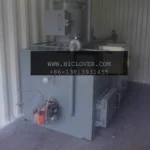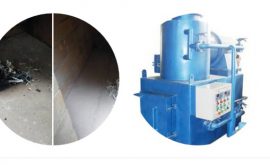High-Capacity Incinerators for Kenya’s Medical Universities and Teaching Hospitals
High-Capacity Incinerators for Kenya’s Medical Universities and Teaching Hospitals
Introduction: Training the Next Generation of Doctors
Kenya is rapidly strengthening its medical education sector, with universities in Nairobi, Eldoret, and Kisumu expanding their teaching hospitals. These facilities not only provide clinical training for future doctors but also serve as high-volume referral hospitals handling thousands of patients daily. With such growth, the need for high-capacity medical waste incinerators has become critical to ensure both educational and operational safety.
The Challenge of Medical Waste in Teaching Hospitals
Unlike smaller county hospitals, teaching institutions generate large and complex waste streams, including:
-
Infectious waste from surgical wards and laboratories
-
High volumes of disposable plastics from training exercises
-
Sharps from daily student practice and medical procedures
Without robust treatment systems, these facilities face compliance risks under the National Environment Management Authority (NEMA) regulations and lose eligibility for international donor support.
Compliance and Documentation Requirements
Medical universities often work with international partners, NGOs, and donor-funded research projects. These collaborations require strict compliance with WHO guidelines and demand temperature monitoring and documentation of waste destruction. For this reason, incinerators with temperature recorders and automated PLC systems have become a standard requirement for Kenya’s academic hospitals.
HICLOVER TS250: A Reliable Solution for Academic Hospitals
The HICLOVER TS250 model has been developed for facilities that require continuous, large-scale waste disposal:
-
Capacity: 250 kg/hour burn rate, ideal for referral and teaching hospitals
-
Primary Chamber: Over 2,500 liters, capable of handling bulk medical waste and plastics
-
Secondary Chamber: ≥1100°C with ≥2-second gas retention, ensuring complete destruction of dioxins and furans
-
PLC Automation: Automatic ignition, airflow control, and temperature recording for compliance audits
-
Fuel Options: Dual-fuel burners (diesel and gas) to adapt to different supply chains across Kenya
-
Containerized Design: Pre-installed in 20ft or 40ft ISO containers for rapid deployment and easy relocation between teaching campuses or donor-funded hospital expansions
Applications Across Kenya’s Academic Sector
-
University of Nairobi Teaching Hospital: High-volume waste incineration for surgical training and research facilities
-
Moi University School of Medicine (Eldoret): On-site waste destruction to support a major referral and teaching hospital in western Kenya
-
Kisumu Medical Training Institutions: Containerized units provide flexible solutions where civil infrastructure is limited
-
Donor-Funded Partnerships: Meeting the expectations of UNDP, WHO, and World Bank-supported medical training programs
Conclusion
The demand for high-capacity incinerators in Kenya’s teaching hospitals and medical universities reflects the country’s dual priorities: advancing medical education and maintaining compliance with national and international health standards. With models such as the HICLOVER TS250, Kenya’s academic hospitals gain access to containerized, dual-fuel, and fully automated waste management technology that ensures both environmental protection and safe training environments for future doctors.
For specifications and procurement inquiries:
www.hiclover.com
sales@hiclover.com





